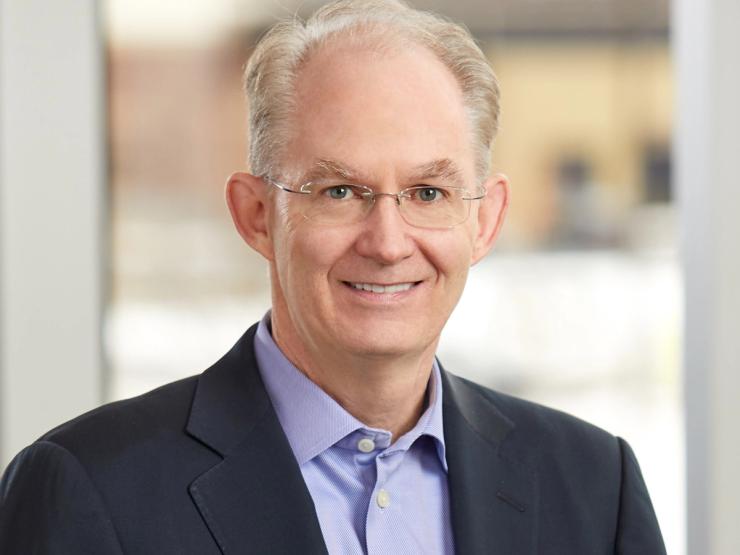The Signal Insight
Some people call Broadridge Financial Solutions a plumbing business, because it handles unglamorous, if essential, market pipework like settling trades and processing shareholders’ votes at annual meetings. Tim Gokey prefers to describe his $28 billion-plus company as a financial technology partner at the intersection of capital markets, wealth management, asset management, and corporate governance.
Broadridge now works with 10,000 public companies, handles 7 billion regulatory communications a year, and settles $15 trillion in trades daily. To some critics, its ubiquity in investor communications looks like “a near monopoly,” but Gokey rejects that claim, and says he sees opportunities to become a far bigger partner to broker-dealers, asset managers, and public companies.
“Our main competitor is really convincing our clients that they have more important things to do than doing the stuff that we do,” the former McKinsey consultant says, contrasting its $6.9 billion annual revenues to a potential market he estimates is well over $200 billion.
Gokey, who became CEO in 2019, says he has overseen three “strategic pivots” to expand Broadridge’s addressable market; build the tech skills to respond to changes such as the rise of virtual annual meetings; and pitch the business as an AI-powered platform company.
Repositioning the business “changes who sits at the table,” he says, but he has tried to reshape its leadership by balancing fresh thinking with in-house expertise.
This interview has been condensed and edited for clarity.
Andrew Edgecliffe-Johnson: What has been most important in changing who ‘sits at the table’?
Tim Gokey: One of the things that we did really well was marry great outside talent with talent that knew the business well. I was a consultant for a long time, and you see businesses bring in a whole new team, and maybe the people are better, but they’re running into furniture in the dark because they don’t know what they don’t know, and they make mistakes. You see other places that just stick with only internal talent, and it’s so hard [for them] to see the next thing, and be hungry for change. If you can get good external talent with people that have been driving what we’re doing and get them working really well together, that is very, very powerful.
How do you get them to work well together?
We spend a lot of time in the recruiting process around people that are just a good fit with us. And I always tell people when I’m recruiting, ‘You don’t have to change the world on your first day. Take your time. Get to know us. We love change, but take the time to understand why it is the way it is. It may look ridiculous, but it’s probably because something bad happened 10 years ago. And that doesn’t mean we have to keep doing it the same way, but understand the why of what we’re doing.’
When we first started recruiting, we had people come and say, ‘Now that I’m here, I’m going to fix all this stuff.’ And that just doesn’t go over as well. But when people come and say, ‘This is great, and we can make it better,’ it just feels very different.
You talk about playing into a trend of democratization in investing. How does that affect you?
We’ve been helping asset managers with that in a couple of ways. One is pass-through voting, which enables the underlying shareholders of funds to express a preference on how they’d like those shares voted. We’ve gone from eight funds two years ago to 100 funds last year to 400 funds this year.
Then there’s a lot of concern about the duopoly of [proxy advisors] ISS and Glass Lewis. We’ve always taken the view that if we’re going to be counting the votes, it would be a conflict of interest for us to be making a recommendation about what the outcome should be. But we are working with some of the largest asset managers to say, ‘Look, give us a clean set of data with all the data points that we would use to make voting decisions and give us a rules engine so that we can create our own unbiased, data driven, rules-based approach to be a complement to what ISS and Glass Lewis are doing.’ We will have a version live this proxy season for a group of asset managers, and then a full solution next proxy season.
You sit between companies and their shareholders. What insight does that give you into what good practice in shareholder engagement looks like?
We’ve been through an era when most people concluded the retail vote didn’t matter that much and it was hard to access, so they just focused on the institutional vote. But there have been a couple of really high-profile, close [corporate proxy contests] where the retail vote mattered a lot. The retail vote is a bigger proportion than it was in the past, and with some of these new tools, the voting rate amongst that group will be higher, so it will have increasing importance. But if you start [engaging individual shareholders] when you need them, it’s too late. Retail investors tend to vote with management. So, if you’re in a tight situation, to have them engaged … is going to be a nice factor.
I’ve heard people say Broadridge has a quasi-monopoly over proxy vote processing. Is there an antitrust risk hanging over that part of the business?
We’re proud of the way that we serve the market, and there definitely are competitors. We are larger than they are, but we feel competitive pressure every day. The nature of the market is there are scale and network advantages that do make it easier for one player, and make it simpler for all the people involved.
The pricing is regulated, and if you look at our margins relative to our fintech competitors, they’re much lower. So if we’re a monopoly, we’re like the worst monopoly in the world.
Notable
- One of the proxy advisers in Broadridge’s sights could also choose to avoid advising shareholders how to vote in corporate elections. Semafor reported that Glass Lewis has discussed scrapping its “house view” on ballot measures.


